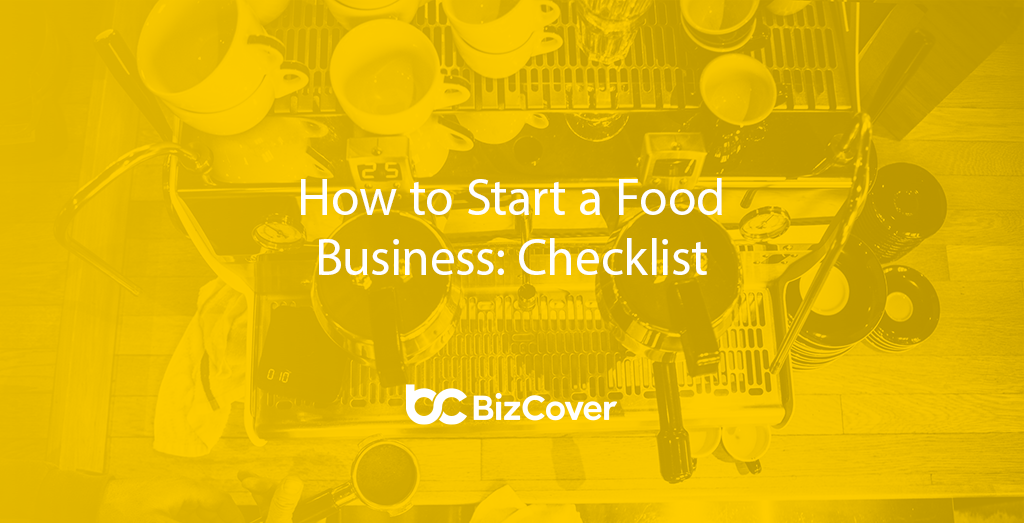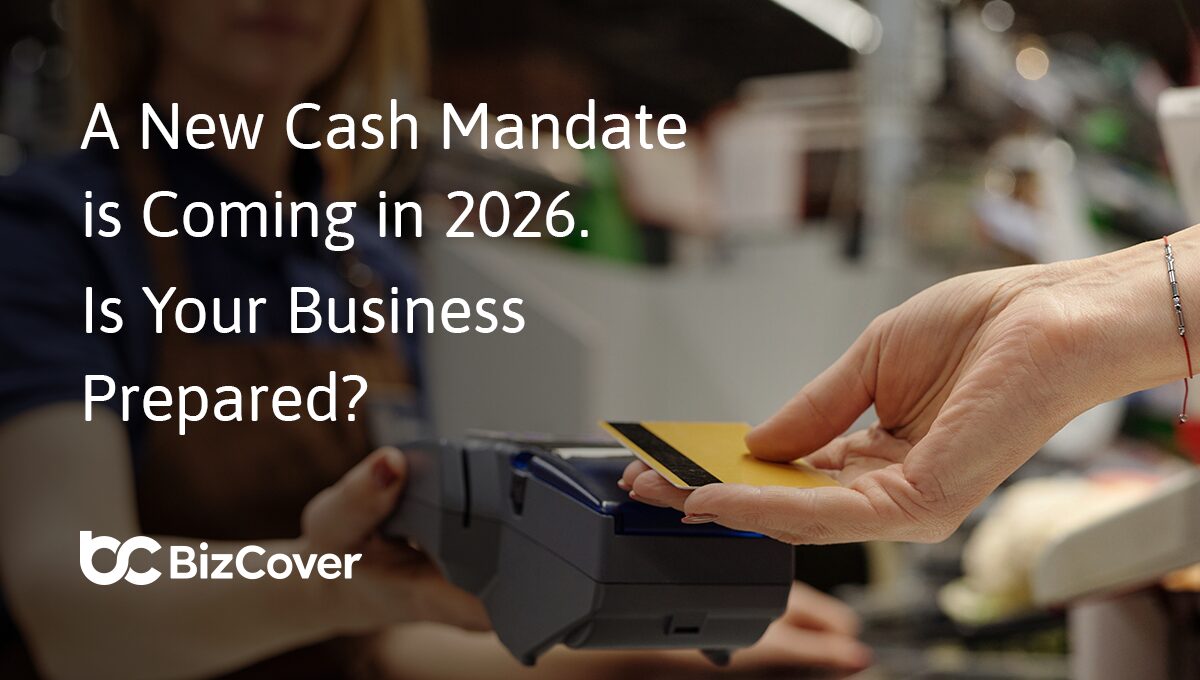How to start a food business: 9-step checklist guide
Do you have a new idea for a restaurant or another type of food business, but are not quite sure where to begin? Well, it turns out that now is a great time to make the leap into food business ownership – because the food service industry is booming.
The idea of starting a food business can seem daunting. But it need not be scary if you follow a proven plan for food business success. So, here are nine solid steps to opening a restaurant that can help guide newcomers to the restaurant and hospitality industry, complete with insider tips to help you get started on the right foot.
1. Create a strong business plan that includes funding
Before you start a restaurant and make any investment in your food business, it is important to conduct thorough research, including your funding options. Exercise patience as you spend the required time researching the foodservice industry, including your target customers, food trends you may embrace, and your competitors in the local area. Also consider the potential locations for your new food business.
Only once you have looked into and weighed up all of those essential details can you start to write a small restaurant business plan – for yourself as the owner, but also for any potential investors you may be having discussions with. You may liken this process to exploring the ‘4Cs’ of foodservice: customer, consumer, channel, and context.
To create a decisive and effective business plan for your new food business – even if you start your own food business from home or start your own food delivery business – there are five essentials that you will benefit from putting careful thought to, as follows:
Define your target market
Who are you targeting to become loyal customers of your new food business? Once you have defined your target market, you will benefit from understanding their buying habits, the reasons they will buy from your food business buy, and what motivates them. This will enable you to create a targeted, relevant offering for these individuals.
Identify your USP
Your USP (your unique selling point) will help your food business to stand out from the crowd. Take a look at your competitors and determine what your competitive advantage is. It doesn’t have to be revolutionary, but it must be relevant. If you are targeting young families, it could be sufficient to create a child-friendly restaurant with healthy meals for kids and parents.
Define your restaurant’s style
Are you considering opening a bakery or a coffee shop, or perhaps homemade food ideas? Each different type of food business requires a different approach, as well as different operating hours, and different levels of capital investment. Make sure you choose the style of food business that is right for you, your budget, and for your desired work schedule.
Choose your menu type/menu offering
Think carefully about what you want to serve in your food service business or your catering business and how it will be presented. You can research online for the latest trends in food and drink, especially for your local market, so you can tailor your menu to suit your customers.
Define your brand
Your branding includes your logo, imagery, menu design, music played, and uniforms for your staff. It defines what your business stands for and what it is all about. Your brand will set the tone for your restaurant and tells your customers what to expect. Part of that is considering how you would like to present yourself and your identity.
After you have created your business plan, go out and test it. Ask your customers to give their opinions and thoughts. This could be as simple as a survey of a few people on the street, or as complex as in-depth market research.
2. Secure your financing
Now is the time to organise your finances. Not everyone can afford to open a restaurant. In fact, many simply don’t have the financial backing needed. There are many other funding options that you may turn to to fund your new venture, such as:
- Applying for a business loan
- Reaching out to your family and friends
- Partner with an outside investor or find investors
- Crowdfunding; and
- Applying for government funding
Remember that achieving a profit may take some trading years and that money may be scarce at the beginning. So consider starting small; you can always scale up later. And remember to choose your business partners wisely because they will likely be by your side for some time.
3. Choose your location
To become a best-selling food business, the location you choose really matters. Location has traditionally been key when it comes to food businesses. However, today that may not always hold true. You may choose the location for your new food business based on many factors. These include:
- Rent cost: Based on your profit and sales projections, how much rent can you afford?
- Accessibility for customers: How can your customers get to your restaurant by foot, car, and public transport?
- Restrictive ordinances: Some neighbourhoods have strict noise restrictions or restrictions regarding when your suppliers can deliver your produce.
- Your proximity to other businesses: Competitors and other businesses can have an impact on your traffic. So map out the immediate local area around you and see how it might affect your business.
- Future planning: Consider what your neighbourhood will look like in two to five years. Also, consider if any major developments are underway that could alter the local landscape.
4. Layout your space
Once you’ve chosen a venue, it is time to plan the layout. This will vary depending on what type of establishment you intend to run. Be sure to carefully consider the layout of your kitchen, dining area, and staff room. It is important to allow your chefs enough space for prep, garnishing, and decorating their dishes.
If possible, avoid compromising on your dining space. This is where the magic happens. As such, it is crucial to create the right atmosphere and decor that makes your customers feel at home.
5. Choose your suppliers with food safety in mind
You’ll work with many suppliers as a restaurateur, including furnishers, POS system providers, kitchen equipment suppliers, and, of course, food suppliers. You may benefit from creating a wish list and a budget before you start looking for suppliers. You shouldn’t compromise on quality but be ready to negotiate.
But where should you begin with your search? You can start by asking for recommendations from other restaurateurs, or simply do a Google search.
Look for trustworthy suppliers with a track record of supplying quality products. Be sure to enquire about delivery times and food safety management practices for food suppliers. Also bear in mind that local suppliers will often have fresher ingredients.
6. Registration, permits and food business licence
Every Australian city or state may have their own, slightly different food business regulations. So it can be important to check with your local regulatory offices and to seek legal advice to ensure compliance with all local food and health regulations. Some licences may take several months to obtain, so tending to this process sooner than later can be a great idea.
7. Start hiring your employees
Consider the staff that you will need for your particular restaurant. The number of staff you may need to hire will depend on how big your restaurant will be. This could include HR managers, purchasing specialists, accountants, marketing and sales executives, chefs, sommeliers, as well as waiters, hostesses, bartenders, and cleaning and dish-washing personnel. Hire enough people for each job and plan shifts and back-ups in the event of sickness or staff requesting time off.
Candidates with enough experience and a proven track record of success are generally the best candidates. They will likely be able to multitask, are efficient, and quick thinkers. Your customer facing employees must be able to work under pressure and have excellent social skills. You can’t be too cautious when hiring staff. Do background checks, check their references, and conduct multiple face-to-face interviews before offering a candidate a position with your food business.
8. Advertise your business
Advertising is a must before you open your new restaurant. While word of mouth marketing is still one of the most effective forms of publicity, there are other options you may consider when announcing your new food venture, as detailed below.
- Create a great website: Make sure it is easy to use and contains all the important information, such as your opening hours, menus, online bookings, and any customer special requests.
- Embrace social media: Create accounts on Facebook, Twitter, LinkedIn, and Instagram and share relevant news, photos, and behind-the scenes information about your restaurant as you prepare for opening day.
- Advertise: Take out advertising space in your local newspaper (or online news platforms).
- Have a soft opening: This is a great way to get some practice before your official opening day. It will also create buzz in your community about your restaurant. Consider limiting the guest list and having a soft-opening for friends and family, then one for local businesses or partners.
- Give promotions to new customers: Offer a free drink or dessert to the first 10, 50, or 100 customers. You’ll be remembered as someone who is generous and warm – after all, everyone loves getting something for nothing.
9. Work hard, and keep at it
Lastly, work hard, don’t give up on your dream, and be willing to take risks. While it can be tough going in the early days of your new food business, the rewards will be worth all of your effort.
Reduce the risks to your food business with business insurance
Many things may happen in a busy restaurant – such as slips, trips, and other unwanted accidents to staff and customers. Business insurance such as food business insurance*, also known as insurance for restaurants and cafes, offers food business owners a proactive and effective way to reduce the risks to their business.
Whichever restaurant start up business or profitable food business ideas you have in mind for your business, even if it is an online food business, some common types of business insurance can help reduce the risks to your food business. These may include Public Liability insurance, Management Liability insurance, Cyber Liability insurance, and Tax Audit insurance.
Learn about hospitality insurance and how it can reduce the risk to your food business.
This information is general only and does not take into account your objectives, financial situation or needs. It should not be relied upon as advice. As with any insurance, cover will be subject to the terms, conditions and exclusions contained in the policy wording.
© 2022 BizCover Pty Limited, all rights reserved. ABN 68 127 707 975; AFSL 501769ABN 68 127 707 975; AFSL 501769
This information is general only and does not take into account your objectives, financial situation or needs. It should not be relied upon as advice. As with any insurance, cover will be subject to the terms, conditions and exclusions contained in the policy wording. © 2025 BizCover Limited.





